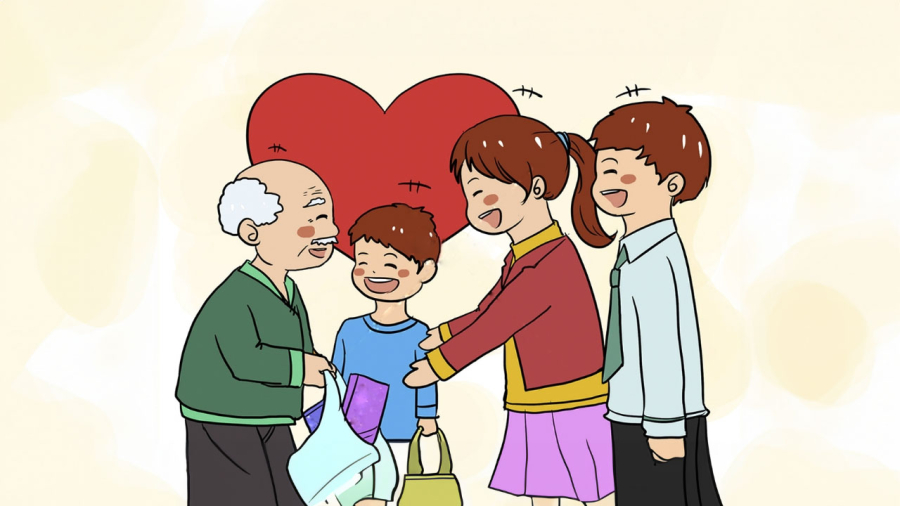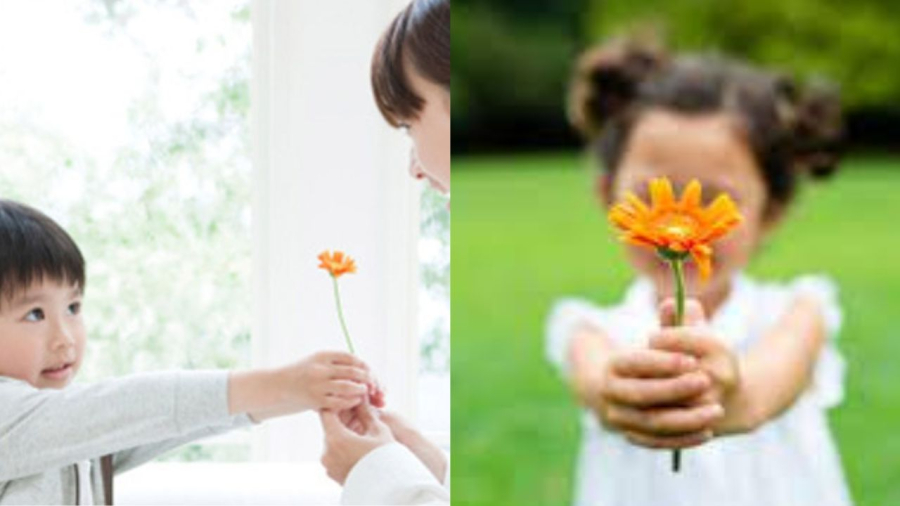While raising children, parents not only hope for their children to grow up successful but also wish for them to be filial. Filial piety not only brings comfort and pride to parents but also is a good virtue for the child’s future. Therefore, filial piety is not just for the happiness of the parents but also for the child’s own future and the moral values of the family for future generations.

Empathy
If your child shows empathy from an early age and considers others before thinking about personal benefits, it is one of the signs that they will be a filial child in the future.
Psychologists say that babies who show empathy usually love and care for their parents and the people around them. These babies will definitely love their parents and thus be filial. On the other hand, babies who lack empathy, are selfish, and only care about their own needs will find it difficult to show filial piety. Parents should accompany and guide them to cultivate good character traits that will help them have a better future.
Show Care
Babies who show care for those around them, such as asking about their parents’ health when they are sick, inquiring about grandparents, caring when they see someone fall… These caring actions show that the child is warm and affectionate. These babies will not neglect their parents when they are sick or in difficult circumstances; they will care about their parents’ health and well-being. Therefore, when they grow up, they will be loving towards their parents. On the other hand, if a child is indifferent, does not ask about others, and ignores them, they will generally not care about their parents when they grow up. Therefore, parents need to pay attention to direct their child’s care towards them.

Gratefulness
Gratefulness is also considered an element that reflects a child’s filial piety towards their parents. When a child has a sense of gratitude, they will be grateful for their parents, the ones who gave birth to and raised them. Gratefulness is the foundation that teaches us how to treat our benefactors, and among those benefactors, parents are the most significant. When a child grows up in a loving and caring family, they often consider it as something natural.
Parents should guide and teach their children about the importance of gratitude from small things, as well as teaching them to say “thank you” and “sorry” at the right time and in the right context.
Learning Tips for Parents: 12 Japanese Techniques to Use with Your Children
Discover the 12 principles of teaching children in the traditional Japanese way that parents can learn with Dien May XANH! By instilling these principles when your children are young, you can ensure that they grow up to be obedient, smart and polite, the hallmarks of a successful education in Japan.





































